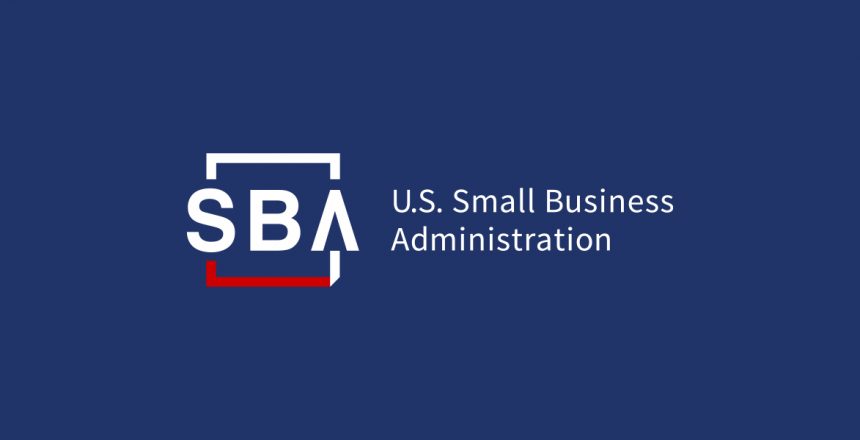You’ve found a lender and a rate you can work with. What more do you need? The fact is, the lender you select can impact your small business loan timeline, likelihood of funding, and overall borrowing experience.
Plenty of lenders are qualified to originate and service your SBA 7(a) loan, but there’s an elite list recognized as top performers that are designated by the Small Business Administration as SBA Preferred Lenders.
We’ll share what an SBA Preferred Lender is, the benefits of working with one, and how to find the right one for you or your client – whether that’s a bank or a “non-bank” lender (we’ll explain the difference).
In the small and midsized business (SMB) space, borrowers face some unique challenges.
A lender’s fixation on those challenges – instead of appreciating the borrower’s full story and potential – can sometime seal the fate of a business. Thankfully, the United States Small Business Association (“SBA”) loan programs exist to offer solutions that accommodate the very nature of small business. These include a more flexible lending box, capped interest rates, competitive terms, lower borrower equity and collateral requirements, and other benefits specifically designed to meet the needs of the SMB.
What is an SBA Preferred Lender?
A variety of lending institutions duly licensed by the SBA can provide an SBA guaranteed loan. But only a small percentage of these lenders have demonstrated the level of experience, efficiency, and successful results to meet the strict standards for membership in the prestigious SBA Preferred Lenders Program (PLP), and the accompanying privilege of being designated an SBA Preferred Lender.
A lending consultant may not fully realize the advantages of partnering with an SBA Preferred Lender instead of another SBA lender that has not attained the PLP designation. But for a variety of reasons, PLPs are typically a top choice for consultants whose clients are looking for financing options from the SBA.
The SBA regularly publishes very extensive, precise guidelines that its licensed lenders must follow (called the “SOP”) to secure the SBA’s guaranty – key to encouraging a lender to share in the risk of delivering financing to businesses that might otherwise be hard-pressed to find similar financing elsewhere on such competitive terms. Understanding the nuances of eligibility and navigating the intricate SOP demands the specialized expertise that the SBA PLP designation tells you has been achieved successfully by an SBA Preferred Lender.
Advantages of working with SBA Preferred Lender
While we’ve talked about the favorable terms that an SBA loan offers a small business, how the lending process will be handled should be equal, if not more important factors when a borrower or lending advisor is choosing a lender. Speed, certainty, and reliability – hallmarks of a Preferred Lender – will save a borrower time, money and frustration.
Speed
The need for speed is a critical factor to any borrower in need of capital.
For a PLP, in most cases, the SBA is not required to be directly involved in the underwriting of each loan, whereas those steps are part of the SBA’s requirement for lenders that are in the SBA General Program (called GPs) that have not attained PLP status. A PLP lender is authorized by the SBA to make decisions about whether a loan application complies with the SOP, while GP lenders are required to send each loan to the SBA for review and approval.
This requires the lender to vary its process to make sure that it delivers a complete file to the SBA (or the file may be returned, starting the submission and review process all over again). And most importantly, it requires the lender to relinquish control over the process and incur a potentially significant delay in getting the loan funded.
By contrast, the PLP underwrites and closes their own customers’ loans and can expedite loans and reorder its pipeline to account for special circumstances that frequently arise.
Certainty
When a business reaches out to their support team, seeking guidance on where to find additional capital, they have generally identified a pressing need or an opportunity that requires quick and decisive action. A busy small business owner does not have the time or bandwidth to waste on false starts with lenders that “hook” them in with the promise of financing, but ultimately are unable or unwilling to deliver. While not every early indication of success results in a successful close (items and issues do come up in the due diligence process), by their very designation, after review of some basic borrower financial items, PLP lenders have the deep experience and pedigree to know very early in the process whether the business is likely to be a viable SBA borrowing candidate, and whether the proposed transaction is eligible under the SBA SOP. This early certainty enables the borrower to move ahead with confidence or seek financing elsewhere.
Reliability
The SBA PLP designation is based on a number of factors deeper and more detailed than just the general success that a lender demonstrates that speak to the overall reliability of a Preferred Lender Provider. In considering and periodically re-certifying a lender for PLP designation, the SBA does a very thorough examination of the lender’s ability to process, close and service loans. It also considers risk ratings, default rates, secondary market performance, loan losses and even performs periodic on-site reviews.
Indeed, the SBA goes to great lengths to make sure that the lenders they admit to this elite club are on solid footing, ultimately reliable, and will properly serve the small business owner whose business is frequently dependent on their dealings with their SBA Lender – in the lending process and beyond. To the business owner, this alleviates the worry that they may be dealing with a lender that doesn’t have the tools to get them the capital they need to thrive and grow, or will not be a good partner for them in the long run.
Is borrowing for LLC small businesses any different?
While SBA loans are available to a variety of for-profit business entities that include sole proprietors, experienced lenders find that LLCs and other similar entities that have filed articles of organization with their Secretary of State tend to be especially attractive borrowers. In addition to LLCs having made the commitment to their own future by formally organizing, many of the standard recordkeeping requirements associated with an LLC entity offer valuable and necessary input in the credit review process. Business consultants who work with LLC clients can help their clients by delivering them to a resource that can provide the capital they need to achieve their growth objectives.
Finding an SBA preferred lender in your state
While you might think that it makes the most sense to look for an SBA lender in your city or state, you should know that there are (SBA) Preferred Lenders (PLPs) that lend nationwide and provide the same tailored consultation as the lender down the street. Especially in a day and age where most of the lending process is accomplished electronically and by phone, its highly likely that a number of the most active SBA lenders in your state are among the top national lenders in the SBA program, and don’t have a brick-and-mortar location.
Some of the states that have the biggest potential need for SBA loans are California, Texas, and Florida:
SBA Preferred Lenders in California
With 1.6 million businesses, employing 17 million people, entrepreneurship is the backbone of California. The overwhelming majority of businesses in the state employ fewer than five people. These small businesses are a cornerstone of the state’s economy and an excellent fit for the SBA lending programs.
SBA Preferred Lenders in Texas
With 3 million small businesses in the state of Texas, employing 4.9 million people, Texas has a hearty entrepreneurial appetite. And that appetite has grown over the past two years according to the latest U.S. Census data. Between 2020 and 2022, business applications were up 49.4% in the Lone Star State.
SBA Preferred Lenders in Florida
Florida hangs with Texas and California at the top of the small business and small business employee list with 2.8 million small businesses that collectively employ 3.6 million Floridians. It also holds the designation of being a top veteran-owned business state (per 1,000 residents) along with Alaska, New Hampshire, and Colorado.
See the complete list of most active SBA Lenders on sba.gov
With a strong sense of what an SBA Preferred Lender is, the advantages of working with one, and how to find one, the only question left to answer is: what is a” non-bank” SBA lender, and what are the advantages of seeking an SBA loan from a non-bank versus the bank you currently do business with?
The difference between a bank and non-bank SBA preferred lender
While an SBA loan can be obtained from many banks and credit unions in the United States, many do not wish to devote the significant resources or time to this unique lending program. And even those that do are frequently extremely selective in making SBA guaranteed loans, despite the SBA’s guaranty of a portion of the loan repayment. That’s because the risk presented by a SMB challenges their own, more stringent credit policy.
In many cases, those banks and credit unions, and other financial institutions that are not licensed to make SBA loans, will partner with another SBA licensed lender, frequently in the SBA’s non-bank lender program (SBLC), which specializes in SBA lending and will take care of their customer, but as a non-depository, will not compete for the customer’s deposits – a perfect match.
In addition, non-bank lenders offer a variety of benefits of importance to a lending consultant as well as a business borrower. Perhaps the most important is that these non-bank lenders who are PLPs, ensure that the borrower is getting the experience, creativity and proven success of a provider deemed highly qualified by its PLP designation, but can offer an even wider lending box and more favorable terms because they are not subject to FDIC oversight and the challenges of a tight internal credit policy.
In fact, a non-bank PLP lender can provide highly customized financing solutions and may be able to close loans that a bank would turn down or can regularly offer solutions that would fall outside of the bank’s appetite.
Let’s look at an example
Consider a case where a real estate broker has a business owner client looking for an SBA loan to buy the building they are currently renting. While a bank, even an SBA PLP Lender, can offer a 25-year term loan, to meet their typically more conservative bank credit policies, they are probably going to be looking for the borrower to put up a significant amount of equity to create a loan-to-value in the 60-80% range, in addition to requiring the borrower to come out of pocket for the closing costs in connection with the loan.
Here’s where the non-bank lender comes in – they would offer the same 25-year term loan but provided the business’s net cash flow and the value of the property could support the extra debt, would be likely to require little or no equity from the borrower and could frequently include closing costs in the loan amount. In fact, reduced borrower equity requirements to enable a business to retain cash for its operations is just one of a number of the guiding factors in the SBA’s creation of the non-bank (SBLC) license (and applies similarly to business acquisitions and expansions, etc.).
Meet SBA Preferred Lender Ready Capital
Ready Capital (ReadyCap Lending LLC) is an SBA Preferred Lender and one of the top 10 lenders in the U.S. in the SBA’s small business lending program in 2022. Our lending experts across the country know about the many uses and nuances of SBA loans because we earned our way onto this “Best Of” list, one deal and one satisfied business owner at a time. And as a national non-bank lender, we have had the pleasure of meeting some of the more unique, challenging needs of small and mid-sized businesses in all 50 states – even ones that other SBA lenders were unable to solve. Whether you are a broker, financial advisor, or consultant to small businesses, we would love to hear from you to tell you more about our program and our process and see where we might specifically help you help your customers.
Find out more about our small business loan program
And if you’re ready to discuss a borrowing need or would like a quote, just fill out our short financing questionnaire, and a seasoned member of our lending team will be happy to reach out with a no-obligations introduction call to get the ball rolling on your borrowing journey.





